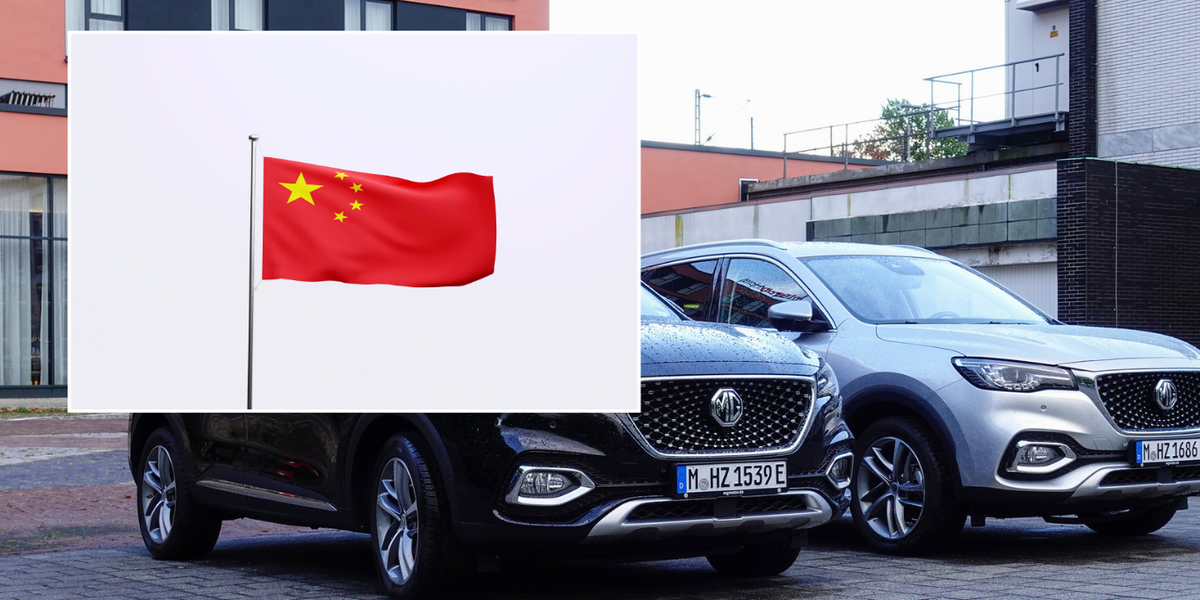Drivers could be swayed to buying a Chinese electric vehicle and ditch a petrol or diesel car if the price dropped significantly, according to the latest reports.
It comes after research revealed that price is proving to be a crucial factor in changing consumer attitudes towards Chinese automotive brands.
The study found that while most expect Chinese vehicles to be cheaper than established brands, even those initially reluctant to consider Chinese options could be convinced by competitive pricing.
One-in-10 potential buyers would be interested with just a 10 per cent price difference, creating a significant opportunity for Chinese manufacturers.
Do you have a story you’d like to share? Get in touch by emailingmotoring@gbnews.uk
Chinese EVs have been growing across Europe in popularity over the past few years
GETTY
The extent of price reductions needed varies significantly. According to the study, around one-third of potential buyers would consider a Chinese vehicle if prices were 11 to 20 per cent lower than established brands.
Interestingly, younger buyers, those under 35, are more receptive to the car makers, with 19 per cent requiring only up to a 10 per cent reduction to consider Chinese vehicles.
Southern European nations, particularly Italy and Spain, showed more positive attitudes towards Chinese brands but expect larger price reductions.
The research suggests this price sensitivity comes as EV demand has stagnated due to premium pricing and limited charging infrastructure, creating an appetite for more affordable options in the market. Overall, 72 per cent of new car buyers expect Chinese vehicles to be cheaper than established brands.
Mark Carpenter, managing director of Escalent UK, said: “We found that at the generic level, the credibility of goods from China tends to trail other countries by a large margin.
“But when the focus is on cars that gap is already a little smaller, with people willing to change their mind for a car that’s of comparable price and quality.”
Despite potential tariffs of 17 to 35 per cent in some markets, Chinese brands are making significant inroads through high-profile sponsorships and advertising campaigns.
“This focus on brand alongside a price offer that is likely to be less than alternatives could change the EV car landscape in Europe very quickly,” Carpenter warned, adding that established brands “need to be looking over their shoulders at the growing threat.”
Chinese brands are steadily gaining recognition, with MG and BYD now ranking among the top 25 most familiar car brands, a list traditionally dominated by German and French manufacturers.
MG has secured the 21st position, while BYD holds the 25th spot in brand familiarity rankings. Other Chinese manufacturers are also making progress, with Xiaomi showing a 50/50 split between aware and unaware consumers.
NIO is also expanding its presence and plans to introduce its affordable EV brand, Onvo, to Europe this year. At least one-in-five car owners would now “probably” or “definitely consider” a Chinese brand, indicating growing market acceptance.
The appeal spans multiple market segments, with potential buyers including owners of South Korean, German, French, Japanese and Italian vehicles.
LATEST DEVELOPMENTS:
BYD has emerged as the most popular Chinese brand among car buyers, with almost one in three saying they would probably or definitely consider it.
The manufacturer has followed a strategy similar to Hyundai’s earlier success, launching television campaigns across Europe and securing sponsorship of Euro 2024. This approach has helped BYD break into the top 10 most visible brands in the past six months, outperforming some more established manufacturers.
